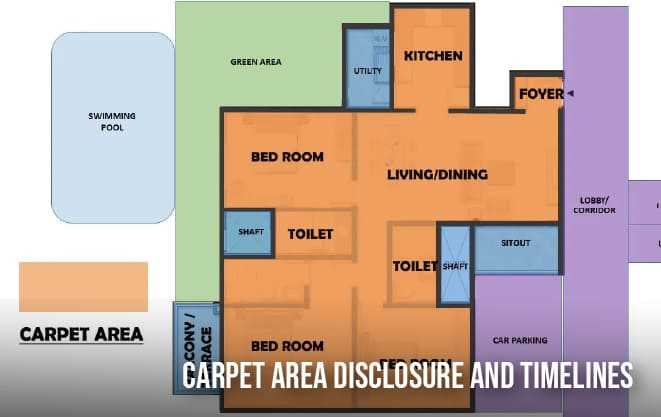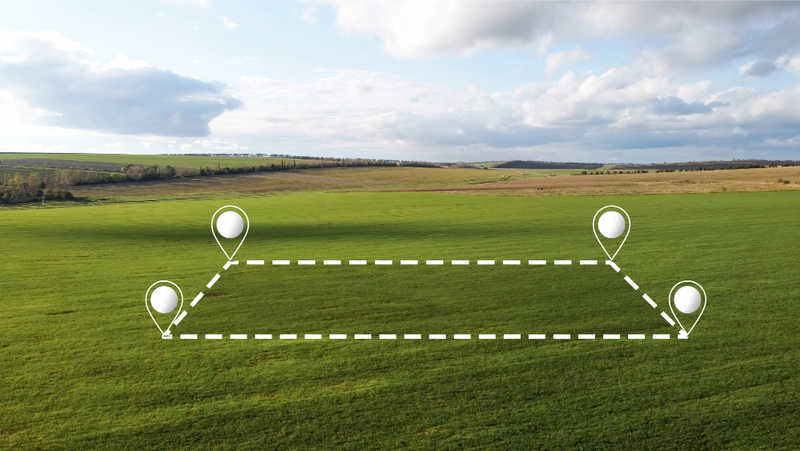RERA Compliance Checklist for Real Estate – A Guide for Home Buyers
Investing in real estate is a big decision for anyone because you are giving your hard-earned money to buy a house. It’s where your new life begins, so it is something that you should not choose in a hurry. Whether you are buying a small affordable flat or a luxurious apartment, you need to be cautious about everything. Buyers of real estate find it challenging to distinguish between safe properties and those that are not. This is why buyers need to be aware of the RERA compliance checklist so that they can make buying decisions carefully.
Understanding RERA
You must know about RERA if you want to stay away from fake builders and keep your money safe. Well, RERA stands for Real Estate Regulatory Authority and it is a regulatory body for the real estate market. Published in 2016, The RERA Act is considered as a rule book to protect home buyers’ interests.
RERA Compliance: What You Need To Know
RERA was brought by Indian Lawmakers to promote transparency in the real estate sector. If a person is buying a home, they have the right to know everything about construction, sale agreement, possession, and payment.
Every state’s homebuyer needs to be aware of RERA to protect their interests and rights. The RERA Act is essentially operating at the local level in each state. For example, you should connect with the MahaRERA authority when buying a home in Maharashtra. For properties in Bangalore, you can navigate to the Karnataka RERA portal.
Let’s check some key pointers of RERA:
- Registration of projects by developers

Before constructing or selling any property, the developers must register their real estate projects with the Real Estate Regulatory Authority. Every builder is supposed to register this and mention the project layout, plans, approvals, and timelines under the RERA of the relevant state. This will make all the details public on the website. As per RERA, all details about the project should be mentioned so that the buyer can make an informed decision.
- Escrow Account
RERA also gives the benefit of an Escrow account in which the developers need to submit 70% of the money collected from home buyers. This will guarantee that the buyer’s money is only used to finish the development of that particular project and reduce the risk of diversion of funds to other projects.
- Carpet area disclosure and timelines
As per RERA, the developers need to also quote the carpet area, rather than the highly developed portion of the property. This will make it clear to prospective homeowners how much space they will get in possession.

Apart from this, developers are required to finish their projects within the allotted time frames. If the developers miss any of the deadlines, they will be penalized or compensated by the homebuyers.
- Rights and Duties of Homebuyers

The RERA Act also displays the responsibilities and rights of home buyers in detail. It covers timely possession, high-quality construction, and the right to information. By the terms of the agreement with the builder, home buyers must also make prompt payments. In addition to this, buyers also need to follow the payment schedule as per RERA.
- Liability for defects
RERA Laos outlines a defect liability period in that the developer must fix any potential structural or workmanship issues that may surface after the possession.
- Grief Settlement
It also addresses the complaints and grievances of home buyers if they have any regarding projects or possessions. In addition to this, RERA also established an Appellate Tribunal so that it can handle appeals against RERA decisions
How to check the RERA possession date?
Buyers always get concerned about the possession date. To avoid any delays from the builder, you should know how to check the possession date in RERA.
Well, checking the RERA possession date of a property is easy as you just have to navigate to the specific state’s RERA portal. Let’s take Bangalore as an example. If you want to check the possession date of any Bangalore project, you have to do this-
- Go to the Karnataka RERA portal
- Select the “Services” option
- Tap on “Project Status”
- Here, mention details such as name, promoter, and more
- You now need to tap on search and get all the details about the project and RERA possession date.
RERA Checklist to Follow Before Buying a property
To avoid any issue while buying a property, home buyers must follow this RERA checklist–
Verify the builder’s credentials
It is important to check the developer’s credentials before investing in a property. Buyers can have a look at whether his previous projects were completed or not. Also, what are the reviews of the projects?
Go through the RERA Compliance:
Checking the RERA compliance is a necessity today. This will let you know whether the property that you are thinking of investing in complies with the rules and regulations of RERA. Self-satisfaction before investment is important which you will get to know by checking RERA compliance.
Check RERA’s site to verify the carpet area
The home buyers must not rely on any data until they get it verified by RERA. To know about accurate measurements, you must check them on the RERA website.
Ask and confirm the payment process
There is a RERA payment schedule according to which the buyers need to pay. This will be as per the construction date. This is why you need to check that the documents comply with the same and are not as per the developer.
As per RERA, the payment slab of an under-construction property will be like:
- Payment of 10% of the property’s value during booking
- Payment of 10% more at the start of project’s construction
- Payment of 15% more when the project is finished up to the plinth
- 2-3% payment after each level is finished
- 5% on completion of the plastering, plumbing, and painting
- Remaining 5% on possession
Don’t forget to check the possession date
The developer of the property mentions the possession date in the document. Buyers must check that the date is correct. For this, you can also navigate to the RERA website of your state to check the possession date.
Conclusion
It is important to understand the RERA act which safeguards the buyer’s interest. However, the RERA compliance varies throughout Indian states. So, prospective home buyers must understand the real estate laws and rules that apply in their particular areas. To make a well-informed decision, the familiarity of the RERA Act is a must.







